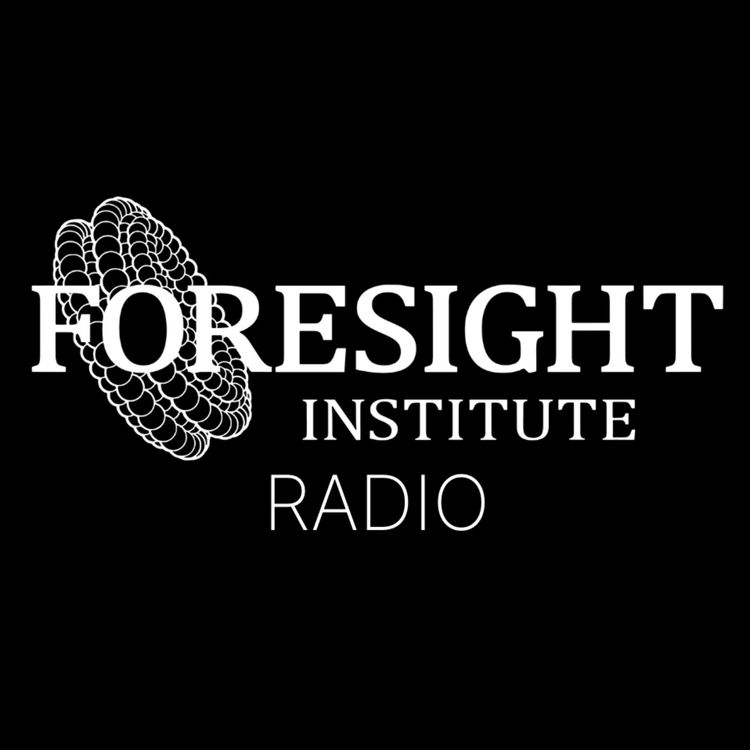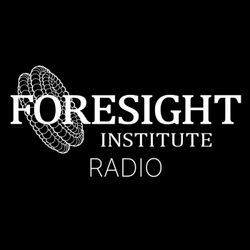Share

Foresight Institute Radio
Tom Burns, Cornell University | At the Interface of AI Safety and Neuroscience
Speaker
Tom Burns graduated with First Class Honours in his Bachelor of Science from Monash University in 2013, exploring the mathematical features of human perception of non-linguistic sounds. Shifting to philosophy, he completed a Master of Bioethics in 2014, analyzing the ethics of euthanasia legislation in Australia, followed by a World Health Organization Bioethics Fellowship in 2015, contributing to the Ebola epidemic response. In 2023, as a Fall Semester Postdoc at Brown University's ICERM, he contributed to the 'Math + Neuroscience' program. Recently affiliated with Timaeus, an AI safety organization, Tom is continuing his research at Cornell University's new SciAI Center from March 2024.
Session Summary
Neuroscience is a burgeoning field with many opportunities for novel research directions. Due to experimental and physical limitations, however, theoretical progress relies on imperfect and incomplete information about the system. Artificial neural networks, for which perfect and complete information is possible, therefore offer those trained in the neurosciences an opportunity to study intelligence to a level of granularity which is beyond comparison to biological systems, while still relevant to them. Additionally, applying neuroscience methods, concepts, and theory to AI systems offers a relatively under-explored avenue to make headwind in the daunting challenges posed by AI safety — both for present-day risks, such as enshrining biases and spreading misinformation, and for future risks, including on existential scales.
In this talk, Tom presents two emerging examples of interactions between neuroscience and AI safety. In the direction of ideas from neuroscience being useful for AI safety, he demonstrates how associative memory has become a tool for interpretability of Transformer-based models. In the opposite direction, he discusses how statistical learning theory and the developmental interpretability research program have applicability in understanding neuroscience phenomena, such as perceptual invariance and representational drift.
Full transcript, list of resources, and art piece: https://www.existentialhope.com/podcasts
Existential Hope was created to collect positive and possible scenarios for the future so that we can have more people commit to creating a brighter future, and to begin mapping out the main developments and challenges that need to be navigated to reach it. Existential Hope is a Foresight Institute project.
Hosted by Allison Duettmann and Beatrice Erkers
Follow Us: Twitter | Facebook | LinkedIn | Existential Hope Instagram
Explore every word spoken on this podcast through Fathom.fm.
More episodes
View all episodes

Eliezer Yudkowsky vs Mark Miller | ASI Risks: Similar premises, opposite conclusions
04:12:32|What are the best strategies for addressing extreme risks from artificial superintelligence? In this 4-hour conversation, decision theorist Eliezer Yudkowsky and computer scientist Mark Miller discuss their cruxes for disagreement. They examine the future of AI, existential risk, and whether alignment is even possible. Topics include AI risk scenarios, coalition dynamics, secure systems like seL4, hardware exploits like Rowhammer, molecular engineering with AlphaFold, and historical analogies like nuclear arms control. They explore superintelligence governance, multipolar vs singleton futures, and the philosophical challenges of trust, verification, and control in a post-AGI world.Moderated by Christine Peterson, the discussion seeks the least risky strategy for reaching a preferred state amid superintelligent AI risks. Yudkowsky warns of catastrophic outcomes if AGI is not controlled, while Miller advocates decentralizing power and preserving human institutions as AI evolves.The conversation spans AI collaboration, secure operating frameworks, cryptographic separation, and lessons from nuclear non-proliferation. Despite their differences, both aim for a future where AI benefits humanity without posing existential threats.
Nobel Laureate David Baker on Using AI for Science to Solve Humanity's Biggest Problems [TEASER]
04:52|This is a teaser episode of the Existential Hope Podcast with Nobel Laureate David Baker. David reveals how scientists are now inventing entirely new proteins—life's fundamental building blocks—to tackle some of the world's most pressing challenges.David shares his journey and his vision for a future where custom-built "molecular machines," an idea once explored by thinkers like Eric Drexler, could repair our bodies, clean up pollution, and create sustainable materials. He explains how breakthroughs in AI are supercharging this field, but also why human ingenuity and collaborative science are still essential to unlocking these revolutionary possibilities.In this conversation, we explore:The incredible power of designing brand-new proteins for groundbreaking medicines, environmental cleanup, and creating novel materials.The exciting prospect of "molecular machines": tiny engines built from proteins to perform complex tasks, inspired by early visions of nanotechnology.How AI is accelerating scientific discovery, and what it takes to translate these digital designs into real-world solutions.David’s "communal brain" philosophy for fostering innovation and his advice for anyone wanting to solve big, meaningful problems.Listen to the full episode on the Existential Hope podcast on here on Apple or here on Spotify or wherever you get your podcasts.
Welcome to Foresight Institute Radio
00:43|This feed is now Foresight Institute Radio—your place for standout talks on frontier technology: from AI and neurotech to nanotech, longevity, and space. You’ll hear highlights from Foresight’s global conferences and seminars featuring top scientists and builders.For long-form interviews, follow our sister show: The Existential Hope Podcast, with guests like David Baker, Steven Pinker, and David Deutsch.Want the slides? Subscribe on YouTube and follow us on X @ForesightInst.🎤 Featuring: Allison Duettmann, CEO of Foresight Institute🎥 Slides + videos: YouTube.com/ForesightInstitute🐦 Updates: X.com/ForesightInst
Jonathan Anomaly | Embryo selection for health, longevity and intelligence
11:04|What happens when parents can choose their children's genetic traits, and which selections benefit society versus harm it? In this talk, Jonathan Anomaly explores the emerging field of embryo selection for intelligence, disease prevention, and longevity. He covers how polygenic risk scores work to predict complex traits and why most diseases involve thousands of genetic variants rather than single genes.Jonathan Anomaly is a former professor who spent 15 years studying the intersection of game theory and ethics, focusing on collective action problems. He recently co-founded a stealth company that will be among the first to offer embryo selection for intelligence and disease prevention.This talk was recorded at Vision Weekend Puerto Rico 2025. To see the slides and more talks from the event, please visit our Youtube channel.
Mary Lou Jepsen | The handheld hospital
10:13|What if you could diagnose stroke, treat cancer, and cure depression with a smartphone-sized device that costs $1,000 instead of millions? In this talk, Mary Lou Jepsen demonstrates her revolutionary handheld medical devices that use ultrasound and infrared light to selectively target diseased cells while leaving healthy tissue unharmed. She covers how her team achieved 100% remission in deadly glioblastoma cancer in mice, moved nearly half of treatment-resistant depression patients into remission, and why making all 68 patents open source could democratize healthcare globally while reducing medical device costs by 93%.Mary Lou Jepsen is a serial hardtech entrepreneur and former MIT professor with a PhD in physics from Brown University. She previously founded multiple multi-billion dollar companies, left Facebook to start her current venture, and recently raised $54 million to bring these breakthrough medical technologies to market as open-source solutions.This talk was recorded at Vision Weekend US 2024. To see the slides and more talks from the event, please visit our Youtube channel.
Jean Hebert | ARPA-H: Accelerate better health outcomes for everyone
08:53|What if a government agency could fund transformative health research with $200 million budgets and no bureaucratic committees? In this talk, Jean Hebert explores ARPA-H's – a research funding agency – unique mission to accelerate health breakthroughs, from 3D-printed organs to functional eye transplants. He covers how ARPA-H operates differently from traditional government funding through autonomous program managers, why it presents exceptional opportunities for longevity researchers, and how both established scientists and entrepreneurs can engage with this well-funded agency that's aligned with life extension goals.Jean Hebert is a professor of genetics and neuroscience, and the author of "Replacing Aging". He currently serves as a Program Manager at ARPA-H. His personal mission remains unchanged: to beat aging, which he believes is achievable through replacement therapies and transformative approaches to life extension.This talk was recorded at Vision Weekend US 2024. To see the slides and more talks from the event, please visit our Youtube channel.
Irina Rish | AI & Scale
12:18|How has the history of AI been shaped by the "bitter lesson" that simple scaling beats complex algorithms, and what comes next? In this talk, Irina Rish traces AI's evolution from rule-based systems to today's foundation models, exploring how scaling laws predicted performance improvements and recent shifts toward more efficient approaches. She covers the progression from GPT scaling laws to Chinchilla's compute-optimal training, the rise of inference-time computation with models like OpenAI's o1, and why we might need to move beyond transformers to truly brain-inspired dynamical systems.Irina Rish is a professor at the University of Montreal and Mila Quebec AI Institute. She also co-founded a startup focused on developing more efficient foundation models and recently released a suite of open-source compressed models.This talk was recorded at Vision Weekend Puerto Rico 2025. To see the slides and more talks from the event, please visit our YouTube channel.
What history can teach us about doing better science – Eric Gilliam
01:06:39||Season 2Eric Gilliam studies how organizations like Bell Labs, early MIT, and the Rockefeller Foundation helped drive scientific progress — and what made them unusually effective.In this conversation, we explore how those models worked, why many of them disappeared, and what it would take to bring them back. Eric explains why fast-moving, engineering-driven labs like BBN (which built the first nodes of the internet) may be essential to accelerating progress in fields like AI, biotech, and beyond.We also cover:Why most funders underuse applied historyHow systems engineers at Bell Labs identified billion-dollar problemsWhat a $100M research organization should do differentlyWhat makes Eric hopeful about the future of meta-scienceEric runs FreakTakes, a Substack focused on the organizational infrastructure of scientific progress. He’s a fellow at the Good Science Project and works with ARIA UK and Renaissance Philanthropy to support new models for R&D.Full transcript, list of resources, and art piece: https://www.existentialhope.com/podcastsExistential Hope was created to collect positive and possible scenarios for the future so that we can have more people commit to creating a brighter future, and to begin mapping out the main developments and challenges that need to be navigated to reach it. Existential Hope is a Foresight Institute project.Hosted by Allison Duettmann and Beatrice ErkersFollow Us: Twitter | Facebook | LinkedIn | Existential Hope InstagramExplore every word spoken on this podcast through Fathom.fm.
Existential Hope Podcast: Glen Weyl | Can we use AI to build a fairer society?
26:27|Most AI discussions focus on its risks to democracy – disinformation, surveillance, centralization of power. But what if AI could make governance better?Glen Weyl, political economist at Microsoft Research and founder of RadicalxChange, argues that AI could be used to create more participatory, decentralized, and democratic systems, if we design it right. In this interview, he explores what AI governance could look like if we tried to use it for real pluralism.This interview is a guest lecture in our online course about shaping positive futures with AI. The course is free, and available here: https://www.udemy.com/course/worldbuilding-hopeful-futures-with-ai/